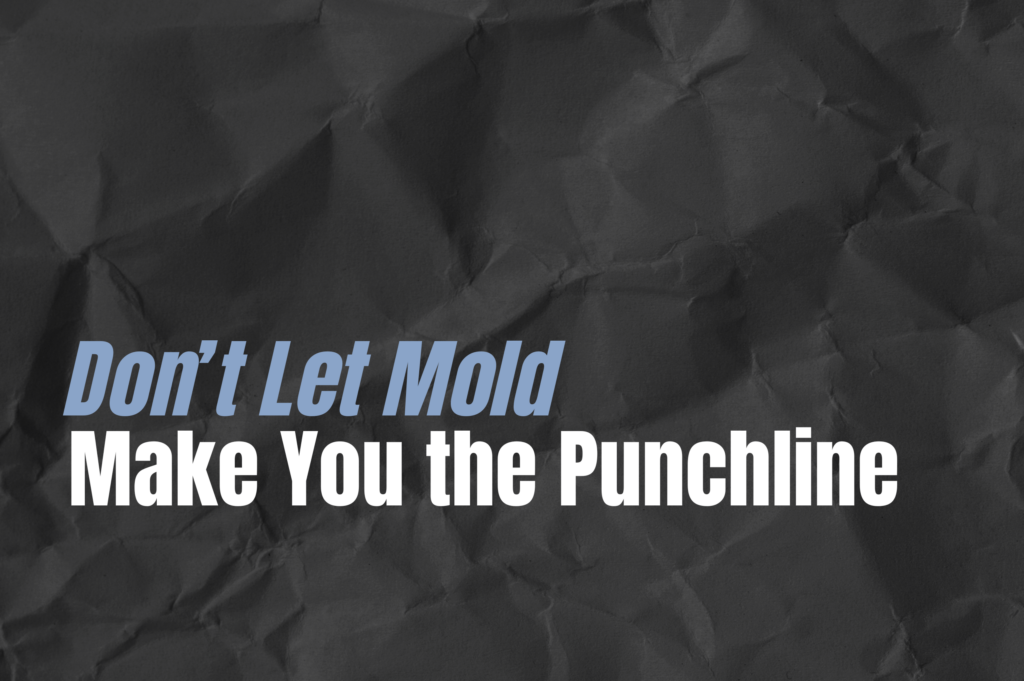Mold Mayhem
Mold— it’s like that uninvited guest who shows up at your party, eats all the snacks, and leaves you with a mess to clean up. Unlike a party crasher, mold can cause serious damage to your property and health. The real kicker? Your insurance policy may not cover the damage. Surprised? You’re not alone. As storm damage and water woes hit record levels, mold exclusions in insurance policies are catching property owners off guard. Let’s dive into the murky world of mold exclusions and see how to avoid getting stuck with the cleanup bill.
Mold Exclusions: The Fine Print You Can’t Afford to Ignore
In the grand game of “What Does My Insurance Actually Cover?” Mold exclusions are like the joker card—unexpected and not very funny. These sneaky clauses wormed their way into property owners’ policies after some high-profile lawsuits in the early 2000s. Remember the Ballard v. Farmers Insurance Group case? Neither did we—until it led to a $32 million lawsuit that made insurance carriers nationwide sweat bullets. The insurance industry responded with a collective “Nope!” by slapping mold exclusions on policies and placing caps on the amount of coverage available for mold damage.
Why Mold and Insurance Don’t Mix
Insurance carriers are the friends who refuse to eat at certain restaurants because of a bad experience years ago. Mold is their bad experience. The problem? Mold is expensive to fix, and health issues linked to mold exposure can linger like a bad odor (pun intended). To avoid footing the bill for moldy messes, insurers decided to cut their losses— literally— by excluding or limiting mold coverage. They figured it’s better to lose a few customers than face another multi-million dollar lawsuit.
The Creeping Threat: Why Molid Is More of a Problem Than Ever
Mother nature has been throwing a lot at us lately— floods, hurricanes, and windstorms that have turned buildings into waterlogged, mold-friendly environments. While mold might start as a small patch, it can spread faster than gossip at a neighborhood BBQ. The bad news? As severe weather events become more common, the risk of mold damage increases. It gets worse— your insurance policy might not have your back when you need it most.
How to Protect Your Property
1. Read the Small Print (Yes, All of It)
Read your insurance policy like a thriller novel—every word matters. Look out for red-flag phrases within your policy exclusions like fungus, rot, and moisture damage.
2. Mold Insurance: Not Just for the Paranoid
You wouldn’t buy a house without a roof, so why settle for insurance that doesn’t cover all your potential risks? Some insurance carriers offer separate coverage or endorsements that cover mold damage more comprehensively.
3. Maintenance is Your Best Defense
The best offense is a good defense, and that’s true for mold, too. Regular property maintenance is like taking your vitamins— boring but essential. Fix leaks, keep your gutters clean, and don’t ignore that weird, musty smell coming from the basement. The quicker you act, the less chance mold has to settle in and make itself at home.
4. Insurance Policies are Confusing— Ask a Professional
Don’t worry about having to review insurance policy alone; our team at Premier Claims is here to help. If you’re scratching your head over what’s covered and what’s not, consult with one of our professionals. They can help decode your policy and suggest coverage options to protect your property adequately.
Submit your insurance policy for review today!
Mold might be one of life’s little unpleasantries, but discovering your insurance doesn’t cover it? That’s a nightmare. By staying informed, reviewing your policy, and taking preventative steps, you can avoid the mold trap altogether. After all, the only thing worse than mold is mold and a denial letter from your insurance carrier.
"*" indicates required fields

